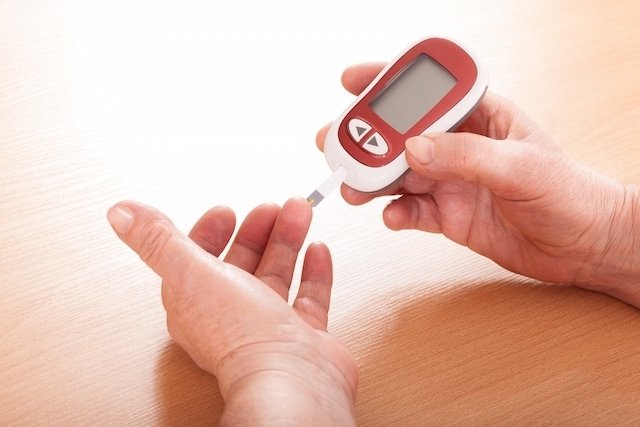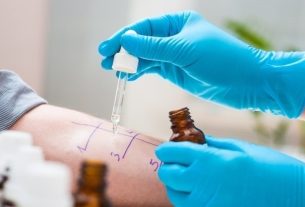To reduce blood sugar levels, it is important to pay attention to your diet, giving preference to whole foods and avoiding excess carbohydrates and sugar, and practicing physical activity regularly, as this makes it possible to avoid blood sugar spikes and the accumulation of sugar in circulation.
Excess blood sugar, scientifically called hyperglycemia, occurs when the fasting blood glucose level is above 100 mg/dL, a situation that, if persistent, can have bad consequences for the functioning of the organs.
Therefore, whenever these symptoms appear, it is important to consult an endocrinologist so that a clinical evaluation can be carried out and tests can be indicated to help confirm the diagnosis and assess the risk of complications.

How to lower blood sugar
To reduce blood sugar levels, it is important to follow the instructions of your general practitioner or endocrinologist, and it is normally recommended:
1. Taking medications
The use of antidiabetic medications may be recommended by the doctor to regulate sugar levels, especially when there is already a diagnosis of diabetes. Therefore, the use of Metformin, Glibenclamide, Glimepiride, Gliclazide or Insulin may be recommended. See more about diabetes medications.
2. Healthy eating
Nutrition is essential to lower blood sugar levels, and it is recommended to avoid the consumption of sugar and carbohydrates and increase the consumption of whole foods, vegetables, fruits and good fats. Check out more details about diabetes nutrition.
Furthermore, it is recommended to eat small meals throughout the day, with an average interval of 3 hours, to avoid blood sugar spikes.
3. Practice physical activity regularly
Practicing physical activity regularly is important so that circulating sugar is used as a source of energy, preventing large quantities from remaining in circulation. Therefore, it is recommended that the person practice walking, running, weight training or any other physical activity for at least 30 minutes a day.
4. Consult an endocrinologist
Regular consultations with an endocrinologist are important, especially in the case of a diabetes diagnosis, as this allows you to monitor the evolution of glucose levels and, thus, make adjustments to medications and prevent complications. It is also important that consultations with the nutritionist also happen frequently so that adjustments can be made to the eating plan.
Nutritional monitoring in pre-diabetes plays a fundamental role, as by changing eating habits it is possible to prevent the progression to diabetes. Learn how to identify and treat prediabetes.
Make an appointment with the nearest endocrinologist for regular follow-up:
Taking care of your health has never been easier!
How to know if your sugar levels are high
To find out if your blood sugar levels are high, it is important to take a fasting glucose test, also known as a fasting blood glucose test, in which glucose levels are considered to be high when a concentration above 100 mg is found. /dL. Diabetes is normally considered when the glucose concentration is above 126 mg/dL in at least two different dosages, or above 200 mg/dL in a single dosage.
In addition to the fasting glucose test, the doctor may also request other tests such as the oral glucose tolerance test (OGTT), postprandial blood glucose or glycated hemoglobin, which provide information on glucose levels over the last three months. Find out more about the tests that confirm diabetes.
To confirm high blood sugar levels, the doctor also evaluates signs and symptoms that the person may be experiencing and which are indicative of hyperglycemia, such as excessive thirst, increased urge to urinate, headache, tingling in the hands or feet and drowsiness, for example. Check out other symptoms of hyperglycemia.
Blood sugar calculator
Check if your glucose level is good by entering your glucose test result into the calculator below:

Sign up for our newsletter and stay up to date with exclusive news
that can transform your routine!
Warning: Undefined array key "title" in /home/storelat/public_html/wp-content/plugins/link-whisper-premium/templates/frontend/related-posts.php on line 12
Warning: Undefined array key "title_tag" in /home/storelat/public_html/wp-content/plugins/link-whisper-premium/templates/frontend/related-posts.php on line 13




